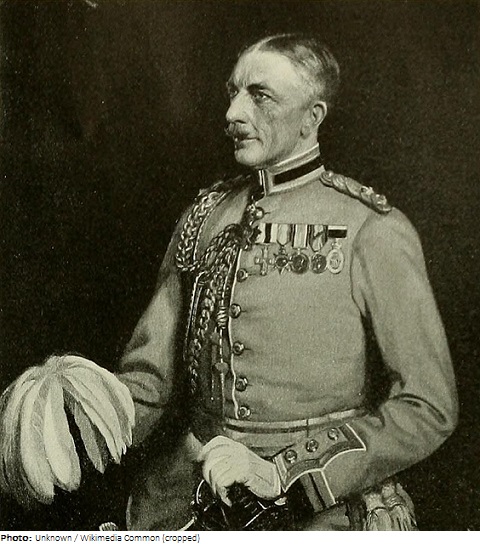John Faunthorpe

Biographical information
| Roles | Competed in Olympic Games |
|---|---|
| Sex | Male |
| Full name | John Champion•Faunthorpe |
| Used name | John•Faunthorpe |
| Born | 30 May 1871 in Battersea, England (GBR) |
| Died | 1 December 1929 in Lucknow, Uttar Pradesh (IND) |
| NOC |  Great Britain Great Britain |
Biography
The son of a Church of England minister, John Faunthorpe was educated at Rossall School in Lancashire, before going to Balliol College, Oxford. He rowed at Oxford, but specialised in shooting and was in the University Shooting Eight. He was accepted into the Indian Civil Service in 1892 and during his time there enjoyed horse racing, polo, pig-sticking (wild boar hunting on horseback), and his favourite pastime of big-game hunting.
Faunthorpe joined the United Provinces Horse, an Indian Auxiliary Force unit made up of part-time volunteers. When World War I broke out, because of his knowledge of intelligence work, he was appointed Military Director of Cinematograph Operations on the Western Front. Faunthorpe often filmed and photographed whilst under enemy fire. He directed the battle films of the Somme, which later became classic movies shown to wide audiences. After the War, Faunthorpe was attached to the British Embassy in Washington, USA, on intelligence work. He won the Military Cross and was awarded the CBE for his work with the Ministry of Information in San Francisco. He was also an Aide de Camp to King V.
Faunthorpe returned to India on civilian duty in 1920 and in the winter of 1922-23 led the Vernay-Faunthorpe big game expedition in India and Nepal with his friend Arthur Vernay. The expedition returned with specimens that went to the American Museum of Natural History in New York and the field Museum in Chicago. Their expedition was caught on film under the title “Hunting Tigers in India”, which was released shortly after Faunthorpe’s death,
Faunthorpe first shot at Bisley while at Oxford and regularly returned from India to compete. He continued attending the annual meeting after retiring from the Indian Civil Service in 1925. His best event at Bisley was the Running Deer Singles, and he won the title in 1924, 1926, 1928 and, for a fourth time, just a few months before his death in 1929. In 1928 he had the honour of captaining India in the Empire Trophy against Great Britain, Australia, and Canada. In 1930 Arthur Vernay presented the Colonel Faunthorpe Memorial Cup to be contested at Bisley by competitors eligible to represent India. It became affectionately known simply as “The Faunthorpe.”
Results
| Games | Discipline (Sport) / Event | NOC / Team | Pos | Medal | As | |
|---|---|---|---|---|---|---|
| 1924 Summer Olympics | Shooting |  GBR GBR |
John Faunthorpe | |||
| Running Target, Single Shot, Men (Olympic) | 21 | |||||
| Running Target, Single Shot, Team, Men (Olympic) | Great Britain | 4 |